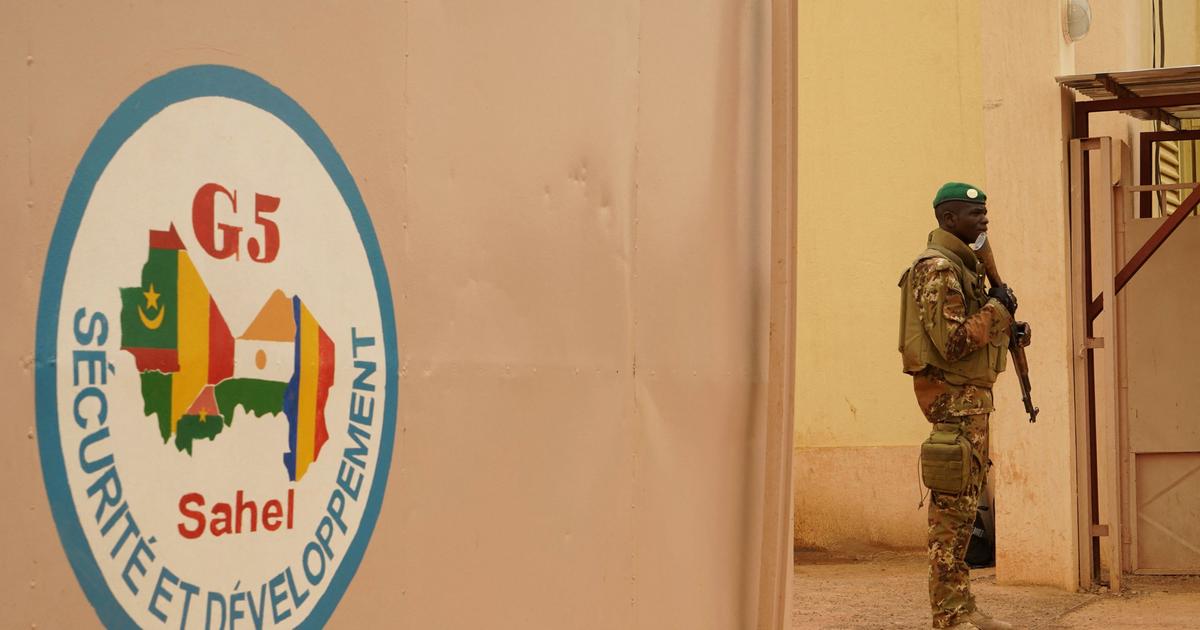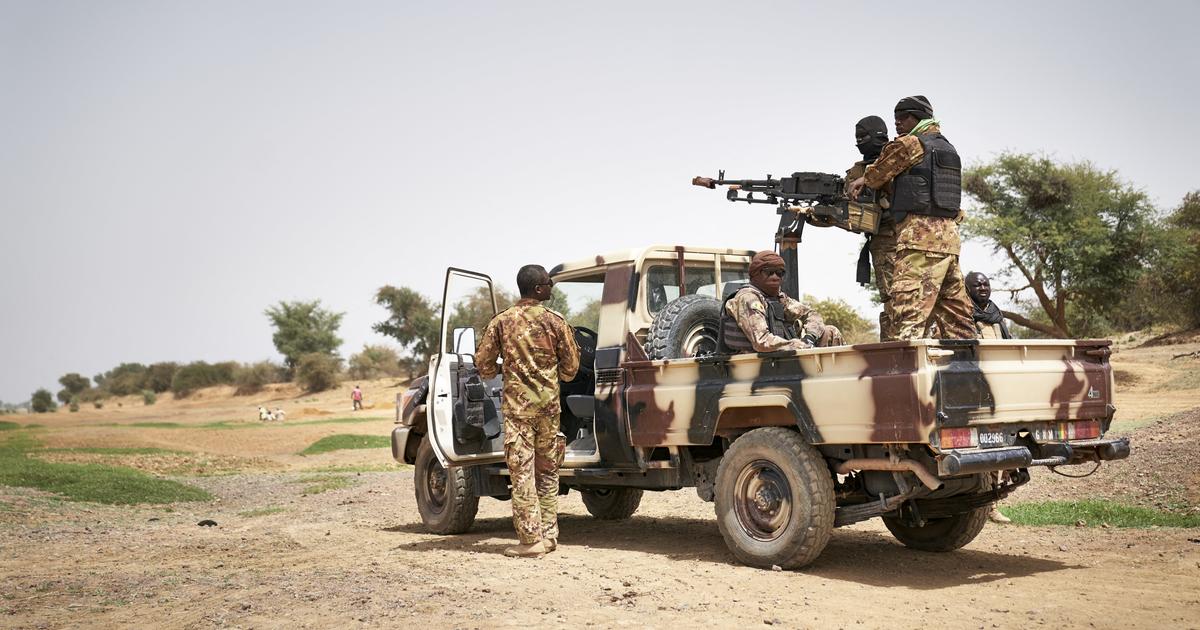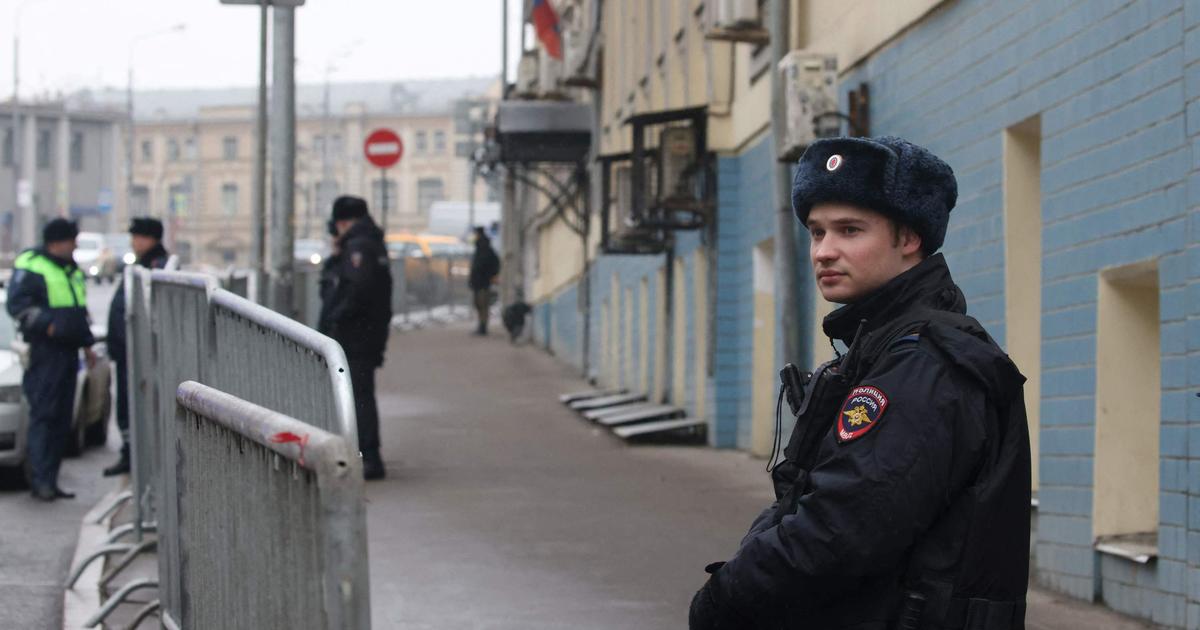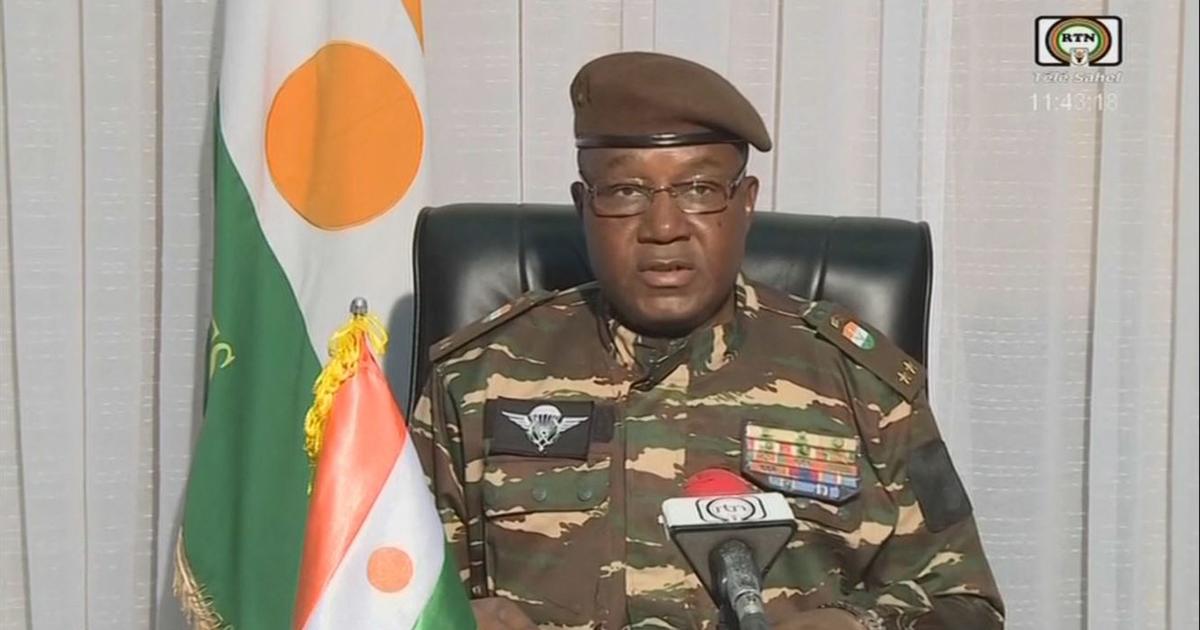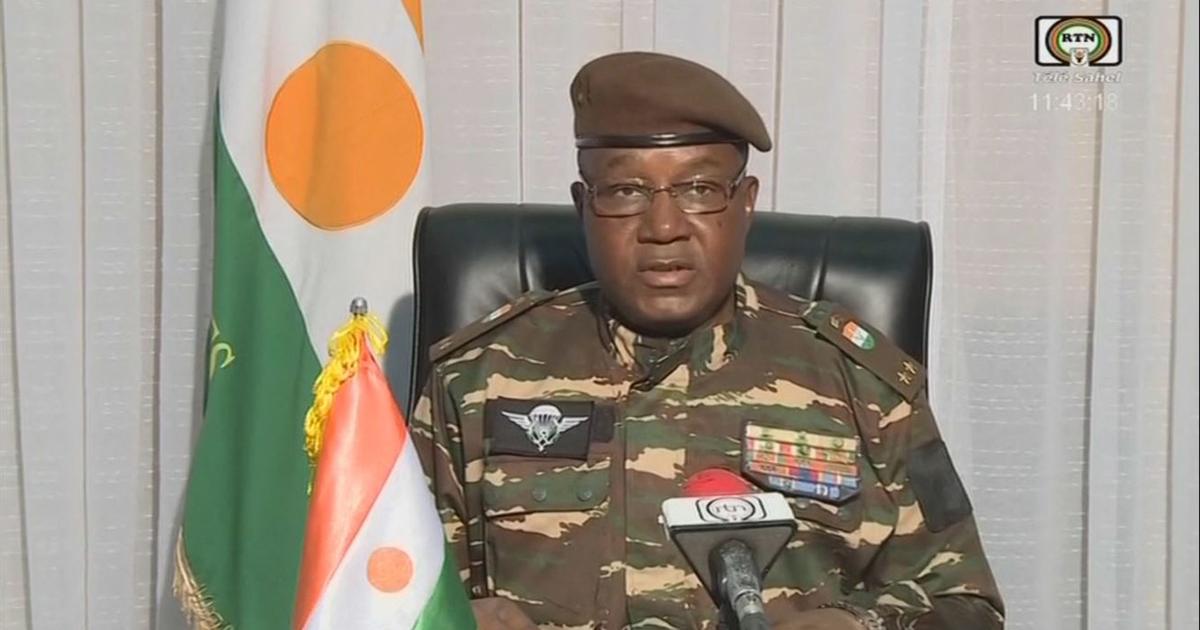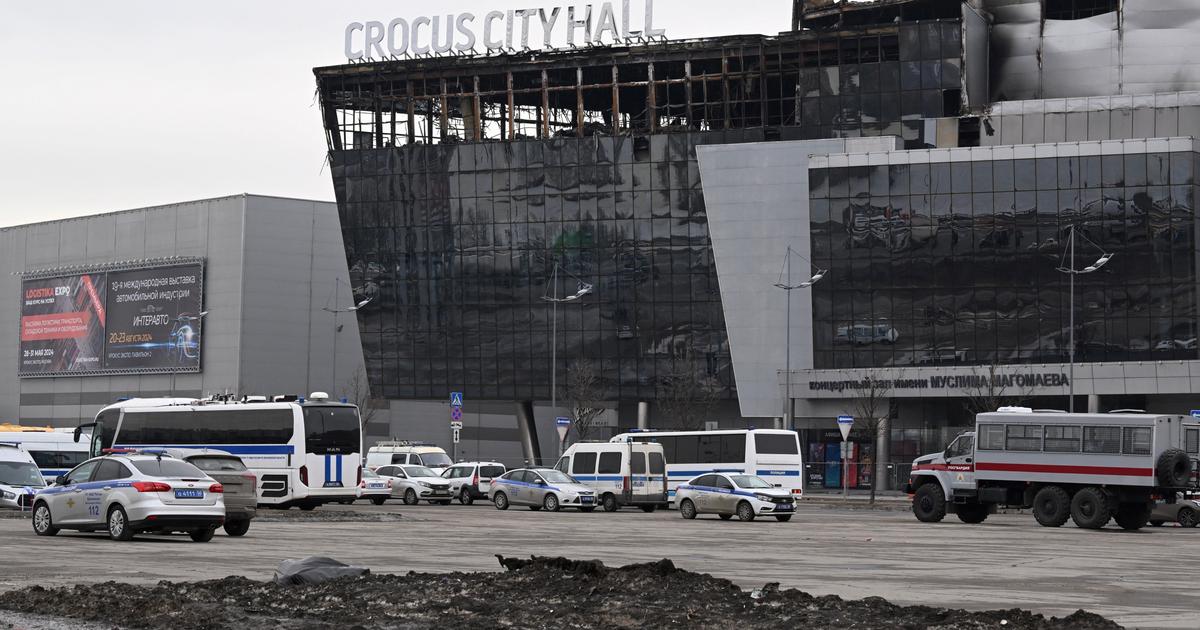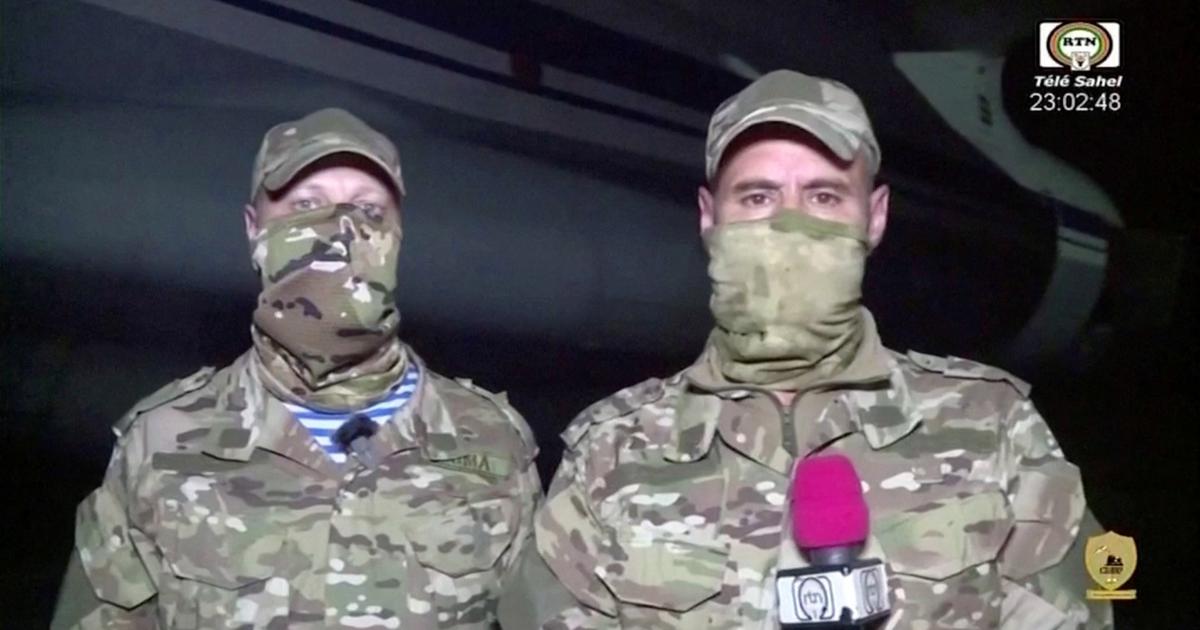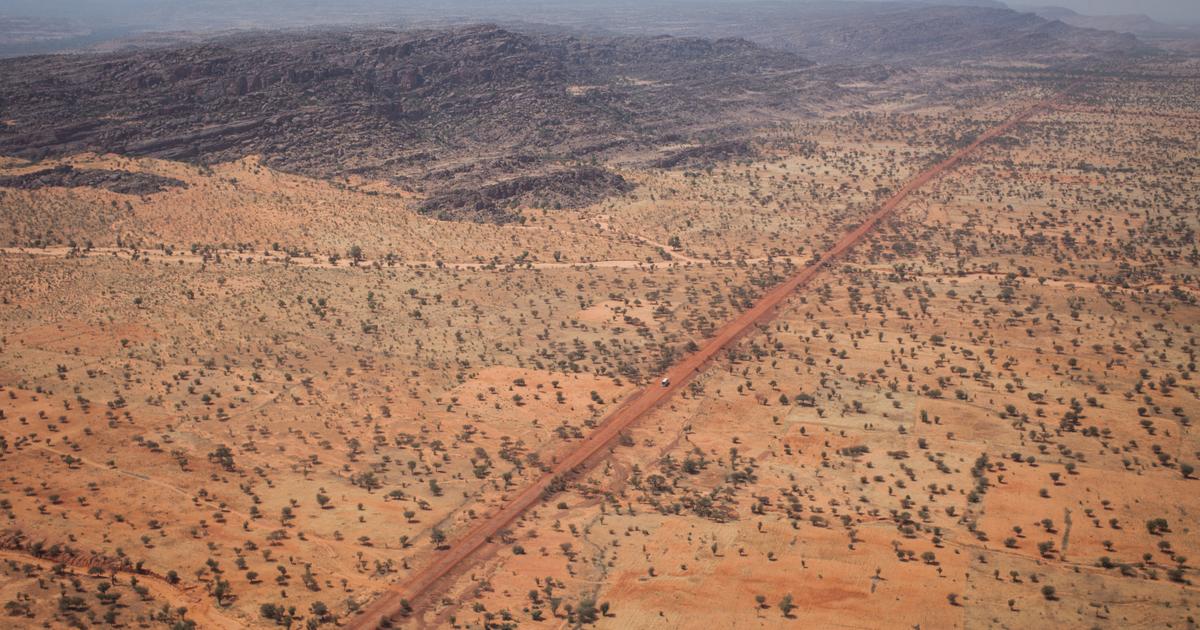Nicolas Normand was French Ambassador to Mali from 2002 to 2006, to Congo, Senegal and Gambia. He is the author of the
Grand Livre de l'Afrique
, Ed. Eyrolles, 2018 edition updated in June 2022.
FIGAROVOX.- What are the reasons that led Mali to withdraw from the G5 Sahel?
Nicholas Norman. -
Mali should, since February, according to a rotating presidency each year, succeed Chad as president of the G5 Sahel.
A country that was not mentioned, probably Niger, would have opposed Mali's presidency given its particular institutional and political situation, its alliance with Russia and the use of Wagner mercenaries. .
This is the official reason put forward by Mali, but the main reason is undoubtedly political.
On the one hand, Mali is out of step with the other G5 Sahel countries, especially with their neighbor Niger.
On the other hand, the Malians are strengthening their alliance with Russia.
Finally, the third reason that can be invoked is the fact that the G5 Sahel has not demonstrated its effectiveness.
Read also“The power and influence of France are endangered in Mali”
What are the consequences for the security of the Sahel?
This decision has no significant consequences because the G5 Sahel was not operational.
I have always been reserved on this force.
From my point of view, the idea was too ambitious compared to the realities.
It would have been simpler to start by reinforcing the bilateral armies and to make bilateral pursuit agreements between the States.
A multilateral instrument is good for consultation, but is complicated to make work.
However, once the G5 Sahel was created, we had to try to make it work.
If we had individually strengthened the five armies of the G5 Sahel, and had created a structure that works with long-term funding, which was possible over time, the G5 Sahel could have become an instrument of ownership by the countries of the Sahel of the fight against the jihadists, in place of Barkhane.
The United States was also not favorable to the G5 Sahel.
This is one of the reasons why the G5 Sahel forces do not have a mandate from the United Nations under Chapter 7 of the Charter.
In theory, the G5 Sahel does not have the right to use force, except in cases of self-defense.
It was certainly possible to consider that the G5 Sahel force was acting in the context of collective self-defence.
However, symbolically, it is important to note that the United States objected in the UN Security Council to the G5 Sahel force having a Chapter 7 mandate, that is to say allowing the use of coercion.
Despite all these reservations, we could make this force work.
The fact that Mali is withdrawing from it and allying itself with Russia is bad for the security of the region.
We need consultation between countries because terrorists ignore borders.
There are many of them in the region known as the three borders between Burkina Faso, Niger and Mali, in particular the EIGS: the Islamic State organization in the greater Sahel.
So it was good that there was at least one structure, which I would have preferred to keep informal, for consultation.
Mali has already withdrawn from Barkhane, from the European Takuba force, now it is withdrawing from the G5 Sahel.
Soon, he will perhaps withdraw from Minusma (United Nations Multidimensional Integrated Stabilization Mission in Mali), the last thing that remains.
EUTM, the European training organization in Mali, has also ceased its activities.
It's not real help, it's business.
Russian mercenaries cost 10 or 12 million euros every month, while Mali is in default
Nicolas Normand
Mali wants to wage an anti-jihadist struggle with the help of the Russians.
The problem is that Russian aid pays off and Mali is a poor state.
The mercenaries cost 10 or 12 million euros each month, while Mali is in default due to sanctions.
It is already nearly 200 billion FCFA behind on the payment of its debt.
On the other hand, Russia is not going to really invest to help Mali since it makes these mercenaries pay, does not provide development aid, and marginal security aid.
She sells her war material, but doesn't give it away: it's not real help, it's business.
The Malians are therefore not going to solve the problem of the anti-jihadist struggle with Russia.
This is part of the bad news that Mali regularly brings us.
Do the countries of the Sahel necessarily need a foreign force?
Yes, even Mali recognizes it since it appeals to the Russians.
The countries of the Sahel need a foreign force.
The President of Niger has explained it well, he has educated his political class and his population, because the armies of the Sahel are very weak.
They are very weak because the States are very weak.
And if the States are very weak it is because their taxation is itself very weak.
The economic system is largely informal, the compulsory levy rate rarely exceeds 10%, for countries that do not have many resources.
Moreover, for decades, the presidents of African countries in general have been wary of their armies because of the frequency of military coups.
To these two reasons, the low resources and the fear of a powerful army, are added the general dysfunction of the state and its clientelist system.
For example, soldiers are often paid in cash by officers.
All this facilitates corruption and clientelism, the recruitment of soldiers is not necessarily based on their skills.
In 2012, the army of Mali comprised 16,000 men.
Today it has doubled these numbers to be around 30,000, but compared to the Algerian army which has 500,000 men, the difference is considerable.
The budget is a few hundred million dollars, while that of Algeria is around 10 or 15 billion dollars.
The Sahelian armies are poorly trained and unprofessional, while the jihadists have significant equipment and are highly motivated.
Air assets, drones, surveillance assets and direct military action are needed to deal with this threat, which has continued to increase since 2012. The threat is growing and is destabilizing the entire region.
There is need for international help.
The blue helmet force is purely defensive, not
The adequate solution would be for national armies to be reinforced with international aid.
But it is important that this international aid is not too visible.
Barkhane suffered from its excessive visibility over a prolonged period and therefore felt like an army of occupation.
This is a reality that must be taken into account.
Inconspicuous international aid is needed, in the background and not in the front line, which is aid in terms of advice, funding, equipment and intelligence.
Without this international aid, the Sahelian armies cannot hold their own against the jihadist forces, whether AQIM or EIGS, the two nebulae active in the Sahel.
We saw it in 2012 when the Malian army was easily beaten by the jihadists.
Again in 2014,
Development aid is useless if a minimum of security is not ensured in these territories.
It is a priority for Europe to provide significant military aid to these countries which are our neighbours.
We cannot neglect this very important threat on our southern flank which, if not dealt with, will result in problems of terrorism in Europe and problems of migration.
The countries of the Sahel also need this international aid.
There is therefore a shared interest in helping the Sahelian armies.
Only Mali stands apart with Russia and poses a problem.
We cannot force Mali to accept European aid since they do not want it.
There has been a deterioration in the security situation in Mali over the past two years.
Nicolas Normand
Does the action of the G5 Sahel make it possible to fight terrorism effectively?
The response is mixed.
The G5 Sahel has an advantage that will disappear with the withdrawal of Mali, that of being the only consultation structure on the fight against terrorism that existed at the level of the five countries of the central Sahel.
It is unfortunate that this consultation and coordination structure is disappearing.
In terms of effectiveness, the joint force of the G5 Sahel represents 5000 men, but it is not a real multilateral force on the model, for example of the FSM which acts against Boko Haram in northern Nigeria.
It is a force where the contingents each remain in their country, and are deployed on both sides of the border, with a right of pursuit of approximately 250 kilometers in the neighboring country.
In practice, this system, created in 2014 on paper, started to work from 2017.
There is a double problem.
A structural problem because the armies of each of these countries are weak armies, and adding them up does not make them stronger.
The second problem is that funding was not assured.
The G5 Sahel was created before the structure that could now finance it, i.e. the European Peace Facility which did not exist before 2021. Another European instrument existed, the Peace Support Facility for Africa, but which could only finance the African Union.
However, the G5 Sahel is not a force of the African Union.
From now on, the European Peace Facility can directly finance external actions without going through the African Union.
When the funding problem is resolved, unfortunately the G5 Sahel disappears.
Chad is currently taking steps to try to convince Mali to reconsider its decision, because it wants to be able to hand over the presidency to Mali and therefore convince Niger and the other countries that it is possible, and secondly the G5 Sahel cannot survive without Mali.
I do not think that the Chadian steps will succeed, but there is a small hope, weak, that Chad manages to convince Mali.
Have terrorist groups gained ground since the withdrawal of Barkhane and French troops in Mali?
Yes, the statistics show an increase in the number of victims.
There is nevertheless a positive fact, it is that the Malian army seems to have more appropriated the question of the fight against the jihadists since the departure of Barkhane and the arrival of the military junta in power.
Before the regime was very passive, and did not communicate.
With the current junta, there is better ownership of security issues.
There is also better communication, but unfortunately distorted by propaganda, which makes people believe that the situation is under control.
However, the situation is not at all under control, we observe a deterioration of the security situation in Mali for two years.
There was a first coup in 2020, and a second in 2021. Since 2021, there has been a deterioration, particularly in the three-border area and in the Ménaka area.
France has evacuated four bases out of six in Barkhane, there remains one in Gao and one in Ménaka.
Barkhane no longer has the right to monitor the territory or to be active in the Ménaka area, which has suffered very serious deterioration.
There were tens of thousands of inhabitants who had to flee and hundreds of people who were massacred.
The FAMA, that is to say the Malian armed forces, did not intervene at all.
Barkhane did not intervene as they should have done,
deterioration has been observed in this and other regions.
For me, it is clear that the situation in Mali prolongs this deterioration which is a heavy trend, and does not date from the departure of Barkhane.
Despite Barkhane, the situation had continued to deteriorate from 2012 to 2020. But Barkhane's departure, the departure of the G5 Sahel, the departure of Takuba, and the withdrawal of EUTM accompanies and accentuates this deterioration.
The areas that had been liberated by Barkhane were reoccupied by the jihadists because the territories were not administered
Nicolas Normand
What solutions to ensure the security of the region?
The solutions are not only military, but you need a military component because the jihadists are attacking, you have to defend yourself and push them back.
So the military aspect is absolutely essential.
But it will not be enough.
The jihadists will come back if we don't deal with the basic issues, which are the absence of the state in rural areas, of the gendarmerie, of the justice service and of the police.
Sovereign functions are not present in rural areas.
The areas that had been liberated by Barkhane were reoccupied by the jihadists because the territories were not administered.
The populations line up under the wing of the strongest and therefore find compromises with the jihadists if the State is not present.
The solutions are to administer the territory that was liberated by military action by restoring a State presence, not only security and judicial, but also basic public services, that is to say centers health and schools.
In areas controlled by jihadists, schools are transformed into Koranic schools, the French language is prohibited, and Sharia is imposed.
The state must be present in these areas.
We must also deal with the problem of idle youth.
At the base of jihadism, there is the population explosion in the Sahel, which is very significant.
Hundreds of thousands of young people reach the age each year when they should have found a job, but there is none.
The jihadists are then often the only job because they have the means to recruit young people.
The state must recruit young people into the army in fragile areas instead of jihadists, to train and supervise them.
Apart from security actions, jobs should also be created.
The small scattering of development aid is not a solution.
The State must encourage economic activities in these regions.
Schools must be reopened because the Malian and Sahelian education system is completely crumbling.
Currently, in the central Sahel, 55% of children do not go to school at all.
And those who go to school are very badly trained, they come out very early without knowing how to read or write.
There is a real public service problem which is absent in the Sahel and which must be dealt with.
I consider that jihadism is somewhat the consequence of negligence by Western countries in terms of development aid in these regions.
It is a fact, education has been neglected,
public services are absent from these regions.
We have abandoned and idle populations that are taken under control, willingly or by force, by jihadist movements.
This fundamental problem must be addressed.

